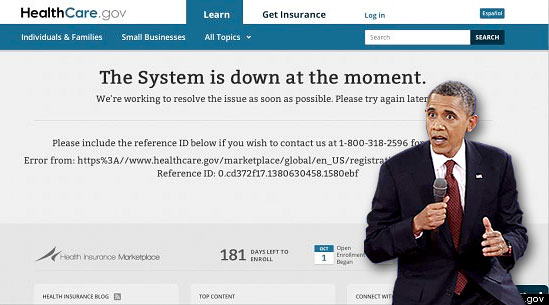 Justice Antonin Scalia’s death isn’t the first time a president has faced a Supreme Court vacancy during an election year. In June 1968, just weeks after Martin Luther King, Jr. was assassinated, and days after Robert Kennedy was gunned down, Chief Justice Earl Warren submitted his resignation to President Lyndon Johnson. An appointee of President Dwight… Read the rest of this entry »
Justice Antonin Scalia’s death isn’t the first time a president has faced a Supreme Court vacancy during an election year. In June 1968, just weeks after Martin Luther King, Jr. was assassinated, and days after Robert Kennedy was gunned down, Chief Justice Earl Warren submitted his resignation to President Lyndon Johnson. An appointee of President Dwight… Read the rest of this entry »
Posted: February 14th, 2016 | Author: admin | Filed under: SCOTUS | Tags: Antonin Scalia, LBJ, Lyndon Baines Johnson, SCOTUS, U.S. Supreme Court | 12 Comments »
 The Supreme Court is poised to dent the political power of labor after conservative justices cast doubt Monday on public sector unions’ ability to collect fees even from workers who disagree with the union’s political or other demands. At stake are millions of labor dollars in “agency fees” that unions collect from teachers, police and other… Read the rest of this entry »
The Supreme Court is poised to dent the political power of labor after conservative justices cast doubt Monday on public sector unions’ ability to collect fees even from workers who disagree with the union’s political or other demands. At stake are millions of labor dollars in “agency fees” that unions collect from teachers, police and other… Read the rest of this entry »
Posted: January 12th, 2016 | Author: admin | Filed under: SCOTUS, U.S. Supreme Court | Tags: Abood v Detroit Board of Ed, First Amendment, news, SCOTUS, U.S. Supreme Court, Union dues, unions | Comments Off on Supreme Court’s conservative justices cast doubt on labor union fees

Kissing Brides, Heather Jensen and Amy Quinn, an Asbury Park Councilwoman, celebrate their marriage shortly after midnight on October 21.2013 facebook photo
The United States Supreme Court made history Friday when it ruled that same-sex couples can get married in all 50 states. There were two questions at hand. One, does the Constitution force states to marry same-sex couples? And two, does it require states to recognize same-sex marriages from other states? The court decided that states must… Read the rest of this entry »
Posted: June 26th, 2015 | Author: admin | Filed under: Gay Marriage, Monmouth County, SCOTUS | Tags: Same Sex Marriage, SCOTUS | 9 Comments »
WASHINGTON — It’s clear now that any overhaul of the Affordable Care Act will have to come through the political system, not the court. And repeal-minded Republicans face trouble generating a mandate for change. Republicans were hoping the court would decide against this key part of the law — and in turn give the party momentum… Read the rest of this entry »
Posted: June 25th, 2015 | Author: admin | Filed under: 2016 Presidential Politics, SCOTUS, U.S. Supreme Court | Tags: 2016 Presidential politics, Chief Justice John Roberts, Democrats, ObamaCare, republicans, SCOTUS, SCOTUSCare, U.S. Supreme Court | 3 Comments »
The Supreme Court of the United States ruled on jurisdictional grounds that the Supreme Court of California had the right to overturn the Proposition 8 referendum to amended the State’s which made same sex marriage illegal.
The effect of the ruling is that same sex marriage is legal in California.
From SCOTUSblog:
Here’s a Plain English take on Hollingsworth v. Perry, the challenge to the constitutionality of California’s Proposition 8, which bans same-sex marriage: After the two same-sex couples filed their challenge to Proposition 8 in federal court in California, the California government officials who would normally have defended the law in court, declined to do so. So the proponents of Proposition 8 stepped in to defend the law, and the California Supreme Court (in response to a request by the lower court) ruled that they could do so under state law. But today the Supreme Court held that the proponents do not have the legal right to defend the law in court. As a result, it held, the decision by the U.S. Court of Appeals for the Ninth Circuit, the intermediate appellate court, has no legal force, and it sent the case back to that court with instructions for it to dismiss the case
Posted: June 26th, 2013 | Author: Art Gallagher | Filed under: Marriage Equality, Same Sex Marriage, SCOTUS | Tags: Prop 8, Same Sex Marriage, SCOTUS, Supreme Court, U.S. Supreme Court | 1 Comment »
The United States Supreme Court has the struck down the Defense of Marriage Act as an unconstitutional violation of the 5th Amendment’s protection of equal liberty.
“DOMA singles out a class of persons deemed by a State entitled of recognition and protection to enhance their own liberty.”
“The federal statute is invalid, for no legitimate purpose overcomes the purpose and effect to disparage and injure those whom the State, by its marriage laws, sought to protect in personhood and dignity. By seeking to displace this protection and treating those persons as living in marriages less respected than others.”
The 5-4 decision was written by Justice Anthony Kennedy.
The Court’s 76 page decision can be downloaded here.
Posted: June 26th, 2013 | Author: Art Gallagher | Filed under: Marriage Equality, Same Sex Marriage, SCOTUS, U.S. Supreme Court | Tags: Defense of Marriage Act, DOMA | 7 Comments »
Good news and potentially bad news
Have you heard about ecoATM? It’s a really cool way to dispose of old cell phones or MP3 players and get some cash or donate to charity.
You put your device into an ATM-like machine which scans it, identifies it and gives you a range of prices that it will pay for the device based upon its condiditon. If you like the prices, the machine asks that you insert a cable into the device so that it can evaluate the condition. After a few moments a cash offer appears on the machine’s screen. If you accept, it dispenses cash after giving you the option to donate a portion to a charity. If you don’t accept, you get the device back.
Yesterday I took a Blackberry 9700 with a broken screen and three Palm Treos that I haven’t used for years to the machine at the Monmouth Mall. The machine is outside of Modell’s and Boscov’s at the southern end of the mall. There were two young women using the machine when I got there and several others watching the process. I was quite surprised when the machine offered the young women $41 for the used phone. I figured $5 or $10 would be the most offered. I got $39 for the broken Blackberry and $1 each for the Palms.
Such transactions may become illegal by this time next year. Selling your car, furniture, books, art or clothes might also be illegal if you don’t get the permission of or pay a vig to the manufacturer of the product, depending on the outcome of a case the U.S. Supreme Court has decided to hear.
According to the Wall Street Journal, Kirtsaeng v. John Wiley & Sons is a case involving Supap Kirtsaeng, a Thai man who came to the United States in 1997 to study at Cornell and stepped into the American Dream in the bookstore. He noticed that the textbooks he was required to buy cost a great deal more at Cornell’s bookstore than he could buy them for back home in Thailand. He bought his books in Thailand. He also bought enough books in Thailand, published by Wiley & Sons, to resell to his classmates and pocket $1.2 million in the process.
Wiley sued for copyright infringement, arguing that the first sale doctrine does not apply to goods first sold outside of the United States. A jury agreed with Wiley and awarded the publisher $600,000. The Second Circuit Court of Appeals upheld the verdict and now the U.S. Supreme Court will hear the case on October 29.
It seems to defy logic and fairness that the manufacturer of a product would retain property rights after the valid sale of their product, regardless of where the sale took place. However, SCOTUS was divided on this issue 4-4 in a 2010 case involving Costco and Swiss watch maker Omega. Justice Kagen recused herself from the Costco/Omega case but will participate in Kirtsaeng v Wiley.
Don’t count on SCOTUS making sense. We’ve seen them declare that women have the right to declare that embryos and fetuses are trespassers invading their privacy, the punishment for such trespass being death, and that penalties are really taxes, even when Congress and the President says they are not taxes.
Posted: October 9th, 2012 | Author: Art Gallagher | Filed under: SCOTUS, U.S. Supreme Court | Tags: Blackberry, ecoATM, Kirtsaeng v Wiley, Monmouth Mall, Palm Treo, SCOTUS, U.S. Supreme Court | Comments Off on Used Goods
A National Review Online Editorial
In today’s deeply disappointing decision on Obamacare, a majority of the Supreme Court actually got the Constitution mostly right. The Commerce Clause — the part of the Constitution that grants Congress the authority to regulate commerce among the states — does not authorize the federal government to force Americans to buy health insurance. The Court, in a 5–4 decision, refused to join all the august legal experts who insisted that of course it granted that authorization, that only yahoos and Republican partisans could possibly doubt it. It then pretended that this requirement is constitutional anyway, because it is merely an application of the taxing authority. Rarely has the maxim that the power to tax is the power to destroy been so apt, a portion of liberty being the direct object in this case.
What the Court has done is not so much to declare the mandate constitutional as to declare that it is not a mandate at all, any more than the mortgage-interest deduction in the tax code is a mandate to buy a house. Congress would almost surely have been within its constitutional powers to tax the uninsured more than the insured. Very few people doubt that it could, for example, create a tax credit for the purchase of insurance, which would have precisely that effect. But Obamacare, as written, does more than that. The law repeatedly speaks in terms of a “requirement” to buy insurance, it says that individuals “shall” buy it, and it levies a “penalty” on those who refuse. As the conservative dissent points out, these are the hallmarks of a “regulatory penalty, not a tax.”
The law as written also cuts off all federal Medicaid funds for states that decline to expand the program in the ways the lawmakers sought. A majority of the Court, including two of the liberals, found this cut-off unconstitutionally coercive on the states. The Court’s solution was not to invalidate the law or the Medicaid expansion, but to rule that only the extra federal funds devoted to the expansion could be cut off. As the dissenters rightly point out, this solution rewrites the law — and arbitrarily, since Congress could have avoided the constitutional problem in many other ways.
Read the rest of this entry »
Posted: June 28th, 2012 | Author: admin | Filed under: 2012 Congressional Races, ObamaCare, SCOTUS, U.S. Constitution, U.S. Supreme Court | Tags: Chief Justice Roberts, Constitution, National Review Online, ObamaCare, violence | Comments Off on Chief Justice Roberts’ Foley
 Justice Antonin Scalia’s death isn’t the first time a president has faced a Supreme Court vacancy during an election year. In June 1968, just weeks after Martin Luther King, Jr. was assassinated, and days after Robert Kennedy was gunned down, Chief Justice Earl Warren submitted his resignation to President Lyndon Johnson. An appointee of President Dwight… Read the rest of this entry »
Justice Antonin Scalia’s death isn’t the first time a president has faced a Supreme Court vacancy during an election year. In June 1968, just weeks after Martin Luther King, Jr. was assassinated, and days after Robert Kennedy was gunned down, Chief Justice Earl Warren submitted his resignation to President Lyndon Johnson. An appointee of President Dwight… Read the rest of this entry »


